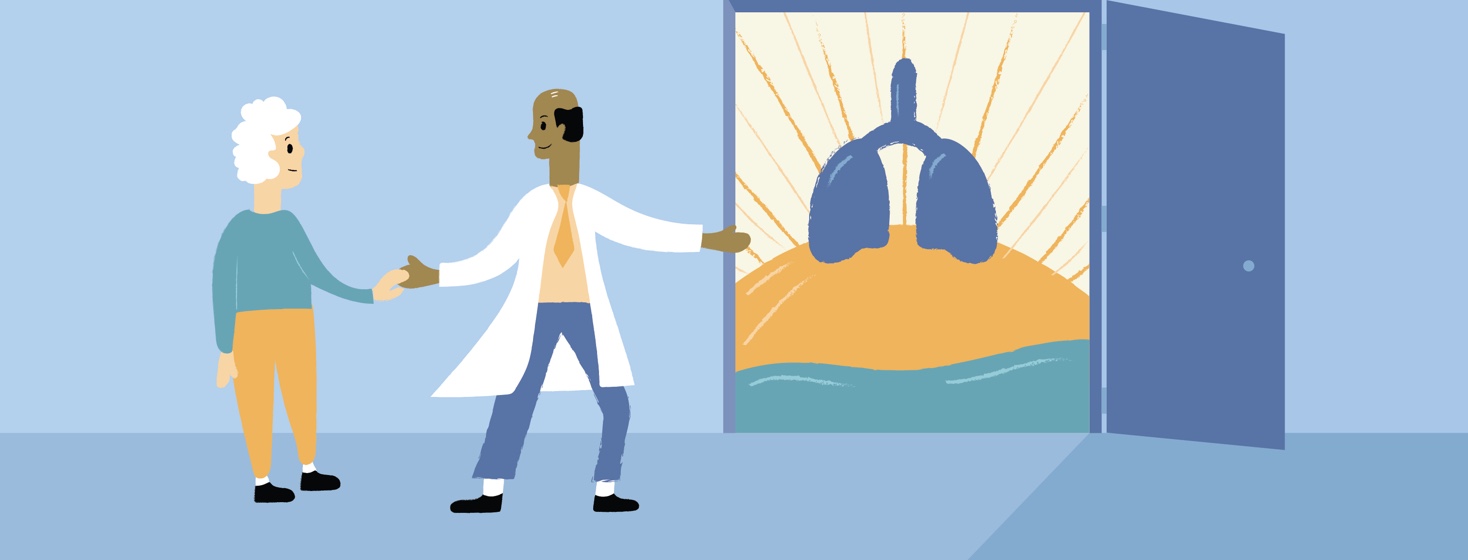40 Undeniable Truths About Great COPD Doctors
If you have COPD, it’s very important that you find a great COPD doctor. Listed here are 40 undeniable truths about great COPD doctors.
Great doctors make you feel welcome
Great doctors make you feel welcome. A great doctor’s personality compliments yours. A great doctor is willing to keep up with their COPD wisdom. A part of their studies involves reading the GOLD COPD Guidelines. These guidelines are put together by the world's foremost COPD experts. Their aim is to guide physicians to the best strategies for helping you best cope with COPD.
Every case of COPD is unique
Great COPD doctors understand that every case of COPD is unique. A part of their job is reading peer-reviewed journals. Another part is staying up on studies that are currently being performed. They are willing to keep you posted on these studies. They have the acumen to spot the signs of COPD. They have the acumen to order the tests needed to see if you have COPD. They explain test results in simple terms that are easy to understand. They are honest with you when giving you a proper diagnosis, but gentle in their approach. They have the acumen to give you the proper diagnosis you deserve. They are knowledgeable of any new treatment options that may help you live better with COPD. They work with you in determining what treatment options work best for you.
They have the humility to know their limits
They know at what point you would benefit from pulmonary rehabilitation. They have the humility to know their limits and when to refer you to a COPD specialist, such as a pulmonologist. They know at what point you would benefit from other specialists, such as a dietician or counselor. They must understand that common comorbidities of COPD are anxiety and depression. They must have the ability to spot the signs and how best to treat them. They have the humility to understand that patients know their body’s best. They are gentle in their approach.
They are good educators
They are good educators. They explain in simple terms that are easy to understand. They ask you if you have any questions. They take the time to answer your questions in simple terms. They pause to provide assurance that you understand. They don’t let you leave appointments with questions unanswered. They are willing to work with you on developing COPD action plans. These are plans that list any symptoms you might feel, and what to do when you feel them. They also list medicines you take on a daily basis to prevent and control symptoms. They encourage you to keep a COPD journal. In this journal, you keep track of the symptoms you feel, when you felt them, and what you did to resolve them. They review your COPD action plan and journal at each doctor visit. They work with you to adjust your COPD action plan as needed.
They put you first and their computer second
They have you bring in all your inhalers with each visit. They have you demonstrate your technique. This is important, as a good technique is essential to getting the most out of your inhalers. In fact, the GOLD COPD Guidelines now recommend doctors do this prior to stepping up treatment. They put you first and their computer second. They don’t give you false hope, but also don’t discourage you either. But, they are honest with you and explain to you in gentle terms what stage you are in. The GOLD COPD guidelines describe four stages of COPD. When explaining them, it’s important they don’t use terms like “End Stage.” This is important because people are now living in the “fourth stage” longer than ever before. This is due to all the great wisdom and treatment options now available. It’s also partly due to the COPD guidelines which, as noted above, help doctors guide you to the best treatment options for you.
They aren't afraid to discuss advance directives
They aren’t afraid to discuss advance directives with you. These are directives that allow you to plan your end of life care. Sure, no one wants to discuss this topic. But a good doctor will bring it up at an appropriate time and in a gentle way. Sure, our goal is to live long and live well with COPD. But, when that time comes, advanced directives put you in control. Sure, no one wants to be told they have a chronic disease like COPD. No one wants to be told they are in the 4th stage of COPD. Still, it’s important that you do know. It’s important because knowing exactly where you stand is the only way for you to know how important it is to make changes in how you live. A great doctor explains what lifestyle changes you need to make to live your best despite your diagnosis. A good example of a lifestyle change is quitting smoking. Another is learning your COPD triggers and how best to control them. Yet another is taking your medicines every day and using proper inhaler technique.
Great doctors know the importance of teamwork
Great doctors know the importance of teamwork. They understand that they are one part of a COPD doctor/patient team. The goal of this team is to help you live well and live long despite COPD. That’s my take on what makes a great doctor. What about you? Is there anything you’d like to add to this list? Let us know in the comments below.

Join the conversation